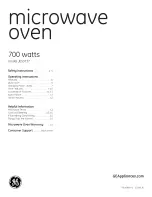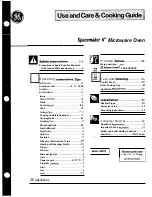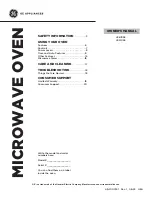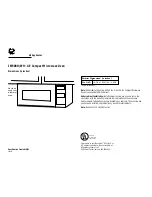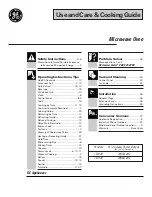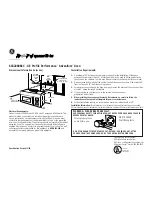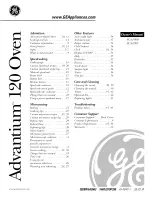
Tested for you in our cooking studio
en
37
Meat
Your appliance offers you many heating types for
preparing meat. You can find the ideal settings for many
dishes in the settings tables.
Roasting and braising
Baste lean meat with fat as required or cover it with
strips of bacon.
Score the rind crosswise. If you turn the joint when
cooking, ensure that the rind is underneath at first.
When the joint is ready, turn off the oven and allow it to
rest for another 10 minutes in the cooking
compartment. This allows the meat juices to be better
distributed. Wrap the joint in aluminium foil if necessary.
The recommended standing time is not included in the
cooking time specified.
Roasting on the wire rack
On the wire rack, meat will become very crispy on all
sides.
Depending on the size and type of the meat, add up to
^
litres of water to the universal pan. Any dripping fat
and meat juices will be caught. You can prepare a
sauce using these meat juices. In addition, less smoke
is generated, and the cooking compartment stays
cleaner.
Slide the wire rack in at the indicated shelf position with
the imprint "Microwave" facing the appliance door and
the outer rail facing downwards. In addition, slide the
universal pan in at the shelf position underneath with
the slanted edge facing the appliance door.
Roasting and braising in cookware
It is more convenient to roast and braise meat in
cookware. You can take the joint out of the cooking
compartment more easily in the cookware, and prepare
the sauce in the cookware itself.
Only use cookware which is suitable for use in an oven.
Check whether the cookware fits in the cooking
compartment.
Glass cookware is most suitable. Place hot glass
cookware onto a dry mat after cooking. If the surface is
damp or cold, the glass may crack.
Add in a little liquid for roasting if the meat is lean. A
covering of approx.
^
cm depth should be applied to
the base of any glass cookware.
The amount of liquid is dependent on the type of meat,
the cookware material and also on whether or not a lid
is used. If preparing meat in an enamelled or dark metal
roasting dish, it will need a little more liquid than if
cooked in glass cookware.
The steam evaporates in the cookware when roasting.
Carefully pour in more liquid if required.
Chicken goujons, nuggets, frozen** Universal pan
2
,
-
-
-
Chicken goujons, nuggets, frozen,
250 g
Universal pan
1
4
190-210
360
15-20
Poulard, 1.5 kg
Cookware, uncovered
1
4
200-220
-
70-90
Poulard, 1.5 kg
Cookware, covered
1
4
200-220
360
30
180
15-25
Duck and goose
Duck, 2 kg
Cookware, uncovered
1
4
180-200
-
90-110
Duck, 2 kg
Universal pan
1
4
170-190
180
60-80
Duck breast, 300 g each
Wire rack
2
4
230-250
-
17-20
Goose, 3 kg
Cookware, uncovered
1
4
160-170
-
120-150
Goose, 3 kg
Cookware, uncovered
1
4
170-190
180
30-40
Goose legs, 350 g each
Wire rack
2
4
210-230
-
40-50
Goose legs, 350 g each
Universal pan
1
:
170-190
180
60-80
Turkey
Small turkey, 2.5 kg
Cookware, uncovered
1
4
180-190
-
70-90
Small turkey, 2.5 kg
Cookware, covered
1
4
210-230
360
45-50
Turkey breast, boned, 1 kg
Cookware, covered
1
%
240-260
-
80-100
Turkey thigh, with bone, 1 kg
Cookware, uncovered
1
4
180-200
-
80-100
Turkey thigh, with bone, 1 kg
Cookware, covered
1
4
210-230
360
45-50
Dish
Accessories/cookware
Shelf posi-
tion
Type of
heating
Temperature in
°C/ grill setting
MW power in
watts
Cooking
time in
mins.
* Preheat
** Observe the information on the packaging
Summary of Contents for CM656GBS1
Page 1: ......
Page 3: ......
Page 56: ......
Page 57: ... 6 DXVJHUlWH PE DUO HU 6WU 0 QFKHQ 50 1 VLHPHQV KRPH FRP 9001093145 9001093145 950224 ...































